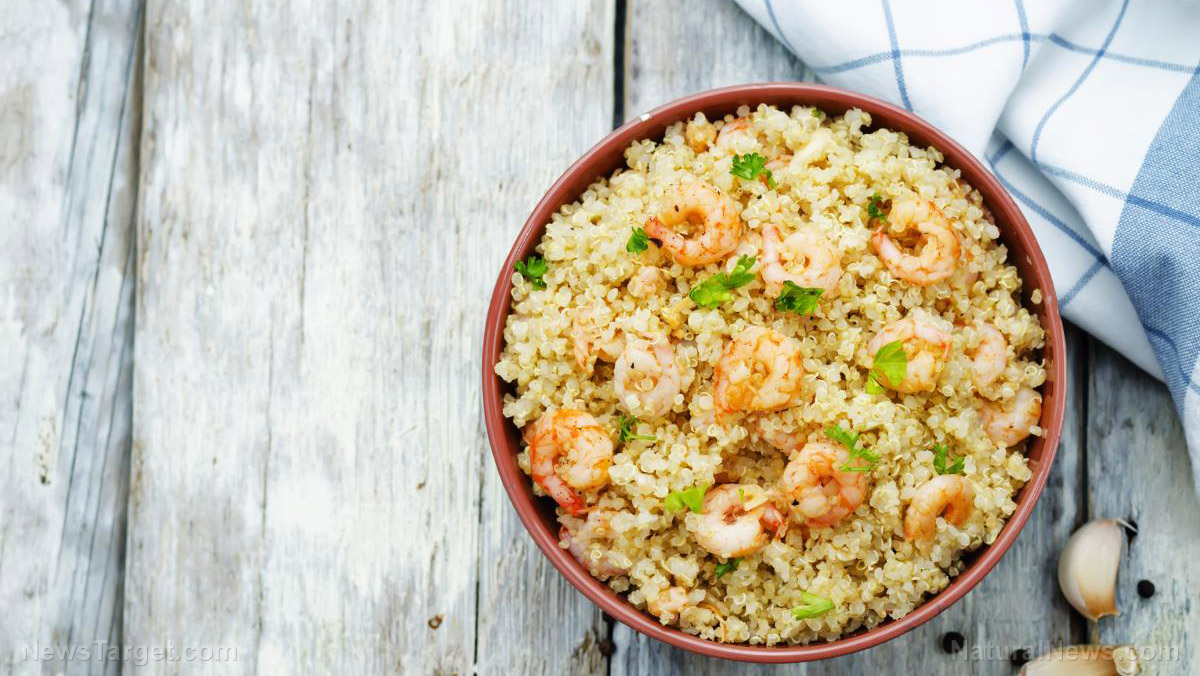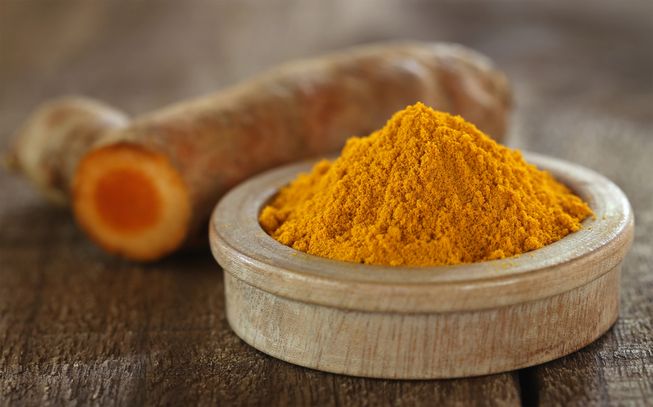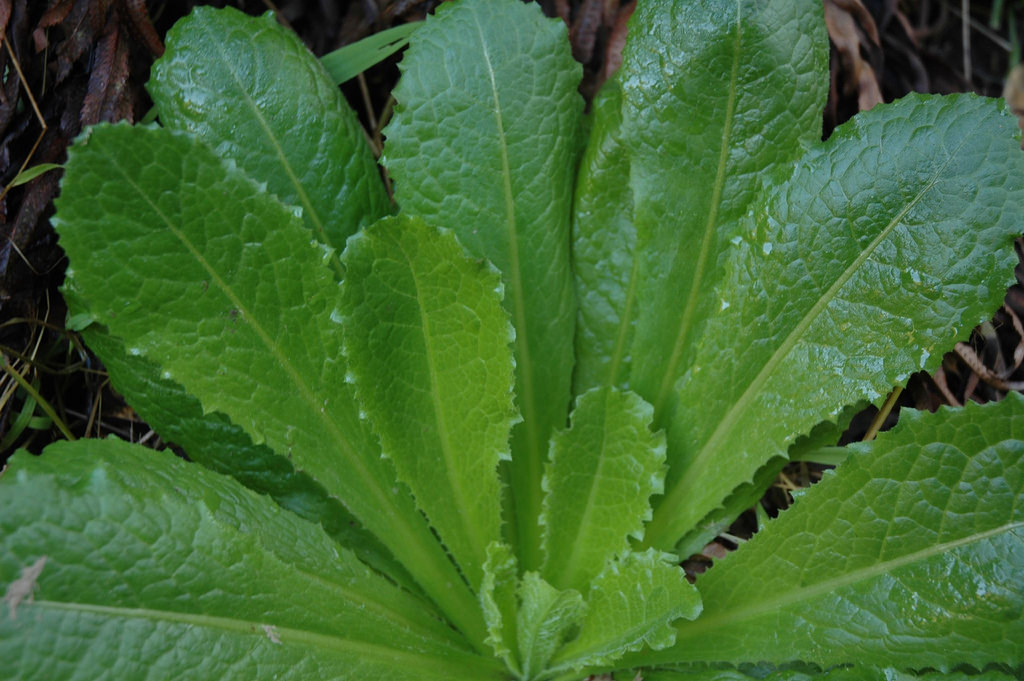
Advertisement
When you see a fresh sprig of parsley decorating your plate, do you eat it or do you ignore it? According to studies, you definitely should eat it. While parsley may just be a common herb and garnish, there are plenty of reasons why you shouldn’t leave this humble superfood on your plate.
More than just a garnish
Parsley is a ubiquitous herb that you can find in groceries all year long. This bright-green plant with a slightly peppery taste can be eaten as a vegetable or used as a seasoning. Parsley usually comes in two varieties: flat-leafed parsley, also called Italian parsley, and curly-leafed parsley. The former is the most common variety of parsley, while the latter is traditionally preferred in British cuisine.
Chefs around the world like to finely chop parsley leaves and sprinkle them on top of soups and other dishes. This herb’s unique flavor also works well in creamy sauces and marinades. As a garnish, parsley can add a pop of color to monochromatic dishes and make them look more appetizing.
But parsley is more than just an embellishment. In case you’re wondering what that sprig of parsley is doing on top of your pasta, it is actually meant to be chewed. Like mint, parsley can freshen your breath if you nibble it. This herb can also aid your digestion, so the next time you see fresh parsley on your plate, don’t ignore this little courtesy from your chef — make use of it after eating!
A nutritious vegetable
While parsley doesn’t look like your normal vegetable, it can be one if you want to. When chopped coarsely, parsley can serve as the base for an unusual but surprisingly tasty salad. Just make sure to purchase fresh parsley and wash it carefully.
When buying parsley at the grocery, always go for the bright green ones. Curly-leafed parsley has a darker color than flat-leafed parsley, but it has a milder taste. You can use both interchangeably for cooking or other culinary purposes.
Parsley is a versatile edible plant that is packed with nutrients. A 100 gram (g) serving of this superfood can give you the following:
- Fiber, 12 percent of the daily value (DV)
- Protein, 6 percent of the DV
- Niacin, 8 percent of the DV
- Vitamin B5, 8 percent of the DV
- Riboflavin, 8 percent of the DV
- Thiamin, 7 percent of the DV
- Vitamin A, 168 percent of the DV
- Vitamin B6, 7 percent of the DV
- Vitamin E, 3 percent of the DV
- Vitamin C, 148 percent of the DV
- Vitamin K, 1,367 percent of the DV
- Calcium, 11 percent of the DV
- Copper, 17 percent of the DV
- Iron, 34 percent of the DV
- Magnesium, 12 percent of the DV
- Manganese, 7 percent of the DV
- Phosphorus, 8 percent of the DV
- Potassium, 12 percent of the DV
- Sodium, 2 percent of the DV
- Zinc, 10 percent of the DV
Besides being an excellent source of essential nutrients, parsley is low in calories. The same serving size contains only 36 calories.
Health benefits of parsley
Like other nutrient-dense superfoods, parsley has been the subject of many studies. This is because of its long history of use as herbal medicine. Research suggests that parsley was once used by traditional healers to treat a variety of conditions.
- Painful urination
- Fluid retention
- Infrequent or delayed urination
- Inflammation of the prostate gland
- Urinary tract infections
- Kidney and bladder stones
- Absent menstruation
- Painful menstruation
- Hot flashes
- Premenstrual tension
Parsley can also help cleanse the digestive system and dispel excess gas and unpleasant body odors.
Here are some other health benefits of parsley according to studies. (h/t to TheHealthy.com)
- Protects against cancer — Scientists have found that a compound in parsley called apigenin can effectively kill breast cancer cells without harming healthy cells.
- Reduces inflammation — Rich in antioxidants like vitamins A, C and E, parsley can help fight oxidative stress and reduce inflammation. These beneficial properties of parsley can greatly lower your risk of inflammation-related diseases, such as arthritis, heart disease, Alzheimer’s disease and cancer.
- Promotes youthful-looking skin — Because of its high vitamin C content, parsley can help keep your skin looking young and healthy. Vitamin C is important for the production of collagen, the protein that gives your skin elasticity.
- Helps strengthen bones — Parsley is an excellent source of vitamin K, which is important for bone health. Vitamin K works together with calcium to help you build strong bones.
- Supports digestion — Parsley has certain properties that allow it to aid in digestion and help reduce bloating. Parsley can also help you expel gas and soothe minor digestive issues.
- Freshens breath — Parsley is a great natural remedy for bad breath. In fact, people used to chew parsley after eating garlic or onion to get rid of the strong odor in their mouths. According to research, parsley has deodorizing effects against sulfur compounds in foods that can leave a foul odor.
- Helps with urinary tract infections (UTI) — According to a recent study by Iraqi researchers, parsley has diuretic and anti-inflammatory properties that can help improve the symptoms of UTI. They believe that apigenin in parsley is responsible for these beneficial effects.
- Helps prevent heart disease — The folate content of parsley makes it a heart-healthy superfood that can lower the risk of heart disease. Folate plays a role in the maintenance of normal homocysteine levels. This is important for heart health because high levels of homocysteine is linked to the development of cardiovascular disease.
- Promotes eye health — Vitamin A is a nutrient that’s essential for good eye health. Parsley is a source of vitamin A, which helps prevent eye dryness and cataracts and supports healthy eyesight.
Eating with parsley
Parsley is a versatile herb that you can use alone or in combination with other herbs to enhance the flavor of food. As a vegetable, parsley is great for making salads. Here is a quick and easy recipe for a delicious and nutritious parsley salad.
Parsley salad with walnuts and raisins
Ingredients
- 1 1/2 cups of flat-leaf (Italian) parsley
- 1/3 cup chopped walnut halves
- 1/8 cup raisins
- 2 tablespoons balsamic vinegar
- 4 tablespoons olive oil
- Salt and freshly ground black pepper
Instructions
- Wash the parsley thoroughly and dry it before chopping.
- In a medium bowl, mix the coarsely chopped parsley with walnuts and raisins.
- Add the olive oil and vinegar and season with salt and pepper.
- Toss well and serve within an hour.
Optional: You can chop an apple or pear to go with your salad. This dish can be served alone or with roasted chicken or seafood.
There’s more to parsley than meets the eye. This humble herb is nutritious, delicious and a real treasure to have in the kitchen. You can use it whichever way you want, be it as a garnish — to be chewed later, of course! — as a seasoning or as a vegetable base for your salad. Parsley contains plenty of essential nutrients and also offers a surprisingly long list of health benefits. These make it a wonderful addition to a healthy diet. To enjoy its benefits, start cooking with parsley and make sure not to ignore this precious herb the next time you see it on your plate!
Sources:
IJMRHS.com [PDF]
Advertisements







